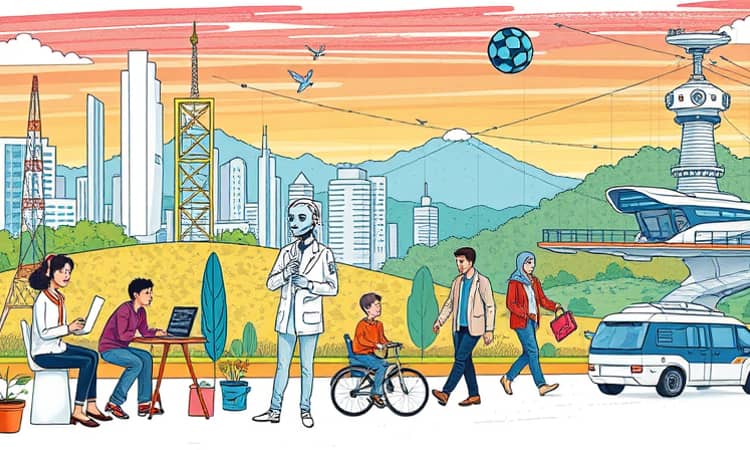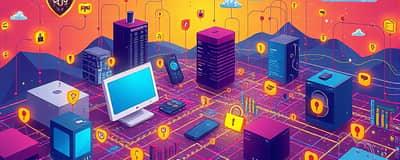Artificial Intelligence (AI) has rapidly evolved over the past few years, transforming various aspects of our daily lives. From the way we communicate to how we work and learn, AI technologies are being embedded into our routines, leading to increased efficiency and improved outcomes. As AI continues to develop, it is crucial to analyze its implications across different sectors and understand its profound impact on our everyday experiences.
This article will explore the significant effects of AI on daily life, focusing on its applications in healthcare, education, the workplace, transportation, and entertainment. Additionally, we will discuss the important ethical considerations surrounding AI technology and conclude with insights on future trends. By grasping these aspects, we can better appreciate the ongoing integration of AI into our lives and its potential to shape a smarter, more efficient future.
The widespread adoption of AI brings with it not just enhancements in service delivery and operational efficiency, but also some challenges that need careful consideration. As we delve into the sections ahead, we will highlight both the benefits and the potential drawbacks of AI technologies, providing a balanced overview of their roles in modern society.
AI in Healthcare
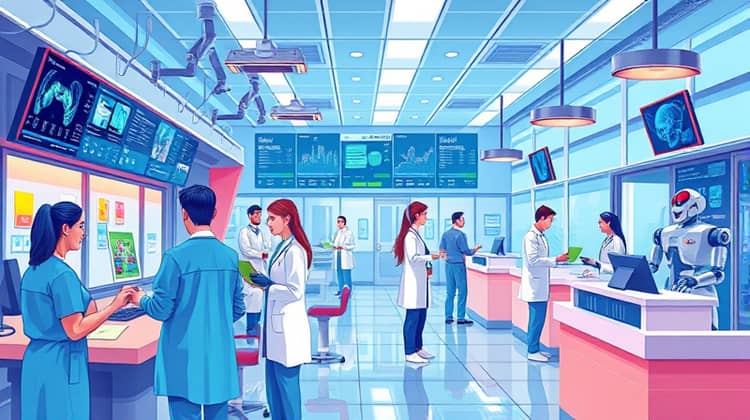
AI technologies are reshaping the healthcare landscape, offering innovations that improve diagnostics, treatment, and patient care. In hospitals and clinics, AI systems can analyze vast arrays of medical data to support physicians in making more accurate decisions. From identifying diseases through imaging to predicting patient outcomes, AI is not only enhancing precision but also leading to quicker results.
Moreover, AI-powered chatbots and virtual assistants are providing vital support in managing patient inquiries and scheduling appointments, thereby improving the overall patient experience. These technologies save valuable time for healthcare professionals by handling routine tasks and allowing them to focus on complex medical challenges.
As healthcare data becomes more complex and voluminous, AI will likely play an increasingly pivotal role in streamlining processes and ensuring that patients receive timely and effective care. The synergy of AI with healthcare has the potential to revolutionize the industry, making it more accessible and efficient.
- AI provides rapid diagnostics and personalized treatments.
- Predictive analytics for better patient outcomes.
- Chatbots assist in managing patient queries efficiently.
AI in Education
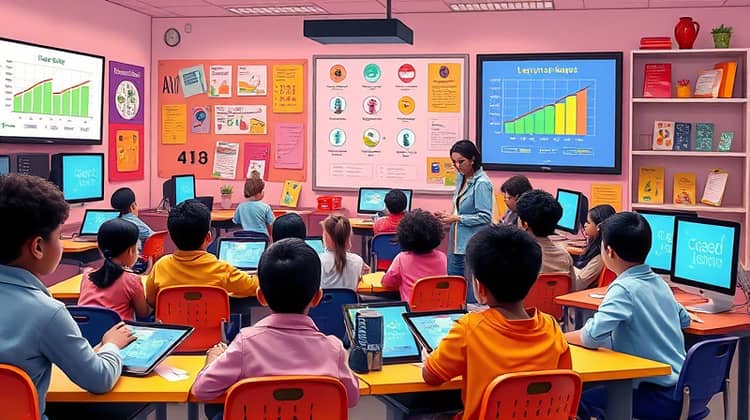
Artificial Intelligence is making significant strides in the education sector, enhancing the learning experience for students and educators alike. AI tools can personalize learning experiences based on individual student needs, pacing, and learning styles, allowing for tailored educational outcomes that were previously unattainable. This individualization ensures that students receive support suitable to their unique learning journeys.
Additionally, AI can automate administrative tasks such as grading, which frees educators to dedicate more time to teaching and mentoring students. By integrating AI into educational systems, schools and universities can create more dynamic and engaging learning environments that foster academic growth and creativity.
- Personalized learning experiences based on student data.
- Automated grading systems relieve educators of administrative burdens.
AI in the Workplace
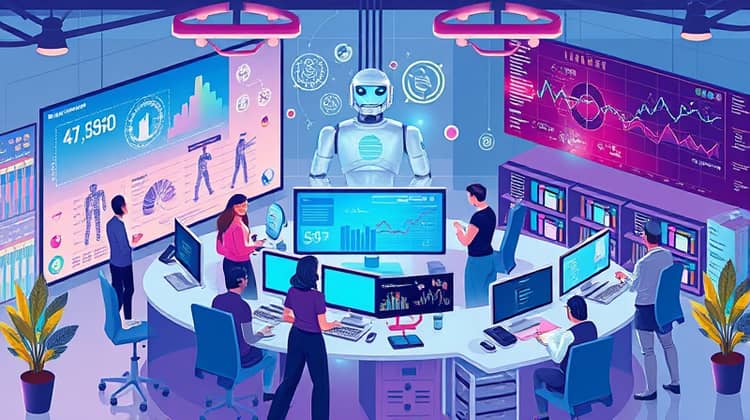
In the workplace, AI is transforming the way businesses operate by streamlining processes and enhancing productivity. From customer service to human resources, AI-driven solutions enable companies to automate routine tasks, leading to increased efficiency and reduced operational costs. Machine learning algorithms can analyze employee performance and provide insights to improve team dynamics and output.
Furthermore, AI tools can assist in decision-making by providing data-driven insights, enabling managers to make informed choices that benefit the organization. The implementation of AI technologies fosters a culture of innovation and promotes collaboration among employees, driving competitiveness in various industries.
The impact of AI on job roles is significant—while it automates certain functions, it also creates new opportunities for employees to engage in higher-value tasks and projects. Embracing AI can empower organizations to adapt to changing market demands and allow workers to focus on strategic initiatives that require human intuition and creativity.
- Automates routine tasks, increasing efficiency.
- Provides data-driven insights for informed decision-making.
- Encourages innovation and collaboration among employees.
AI in Transportation

Transportation is another sector significantly influenced by AI advancements, leading to smarter and more efficient transport systems. AI technologies enable real-time data analysis of traffic patterns, optimizing traffic management and reducing congestion. Ride-sharing platforms use AI algorithms to match drivers and riders efficiently, creating seamless travel experiences.
Moreover, with the development of autonomous vehicles, AI is set to revolutionize the future of transportation. Self-driving cars leverage deep learning and machine vision technologies to navigate and predict road conditions, ensuring safer travel routes. While the technology is still being refined, the long-term potential of autonomous vehicles promises reduced traffic accidents and more efficient urban transit systems.
The integration of AI in public transportation allows for better route optimization and passenger information systems, enhancing overall user experience. With AI at the helm, transportation can become more sustainable, accessible, and efficient.
- Real-time traffic management to reduce congestion.
- Optimizes ride-sharing services for better user experiences.
- Development of autonomous vehicles for safer travel.
AI in Entertainment
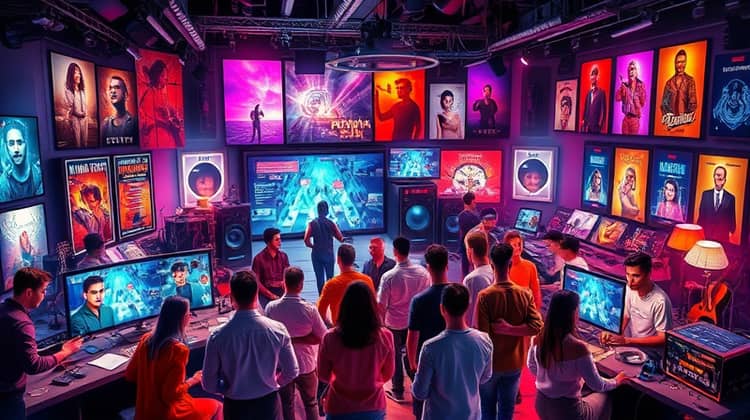
The entertainment industry is not left behind in embracing AI technologies, which are transforming the way content is created, distributed, and consumed. AI algorithms analyze viewer preferences and behaviors to recommend movies, music, and TV shows, creating personalized experiences that keep audiences engaged and satisfied. This personalization extends to marketing strategies, allowing for targeted promotions that resonate with individuals.
Additionally, AI is being used in content creation, assisting artists and producers in generating unique works, from music composition to scriptwriting. By leveraging AI's capabilities, creators can explore new ideas and push the boundaries of traditional entertainment formats.
- Recommends personalized content to viewers.
- Aids in generating unique audiovisual works.
As technology advances, the role of AI in entertainment will continue to expand, offering new possibilities for creativity and engagement that will redefine audience experiences in the years to come.
Privacy and Ethical Concerns
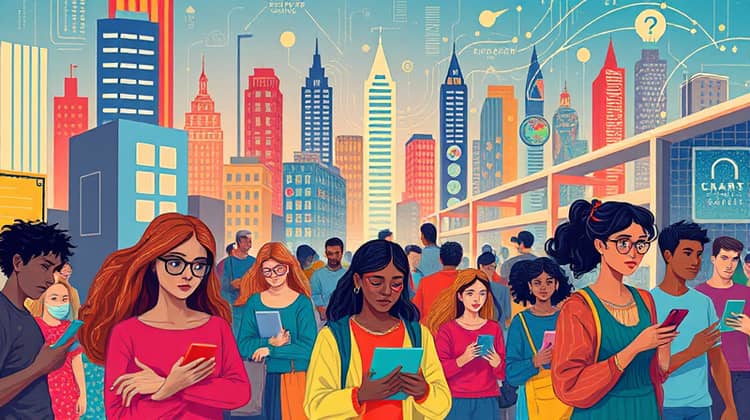
Despite the benefits of AI, there are pressing privacy and ethical concerns that warrant careful examination. The collection and analysis of personal data to fuel AI algorithms raise questions about user consent, data security, and the potential for misuse. As businesses leverage AI for personalized services, they must navigate the fine line between customization and intrusion.
Moreover, algorithms can inadvertently perpetuate biases or lead to discriminatory practices if not carefully monitored. Ensuring fairness and transparency in AI systems is essential to fostering trust among users and preventing unintended consequences.
- Concerns over data privacy and user consent.
- Need for fairness and transparency in AI algorithms.
Addressing these challenges requires collaborative efforts from governments, organizations, and technology developers to create comprehensive frameworks that safeguard individual rights while promoting innovation.
Conclusion
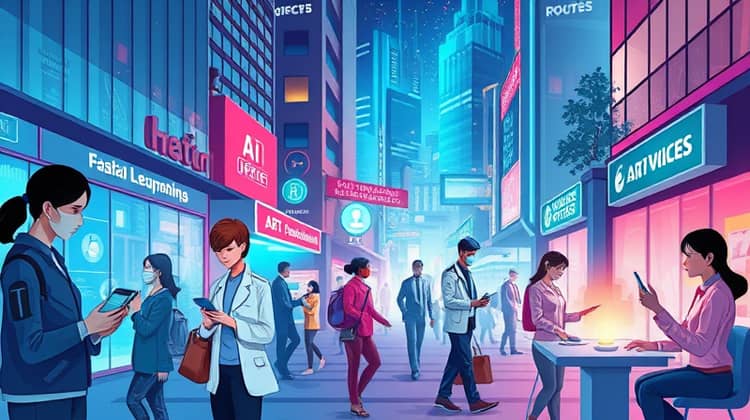
In conclusion, the impact of AI on daily life is both vast and multifaceted, influencing various sectors and shaping the way we interact with the world around us. From healthcare improvements to personalized education and enhanced workplace efficiency, AI holds tremendous potential for positive advancements. However, as we embrace these technologies, it is vital to remain vigilant about the accompanying challenges and ethical considerations that arise.
The future of AI promises even more innovative solutions that will further integrate into our daily routines, making tasks easier and providing unparalleled convenience. As technology advances, the importance of ethical frameworks and regulations cannot be overstated, ensuring that AI serves humanity's best interests and fosters growth.
Ultimately, the challenge lies in harnessing AI's power responsibly while maximizing its benefits across different sectors. The dialogue surrounding AI's influence should continue, focusing on inclusive strategies that promote access, ethics, and accountability in the use of advanced technologies.

